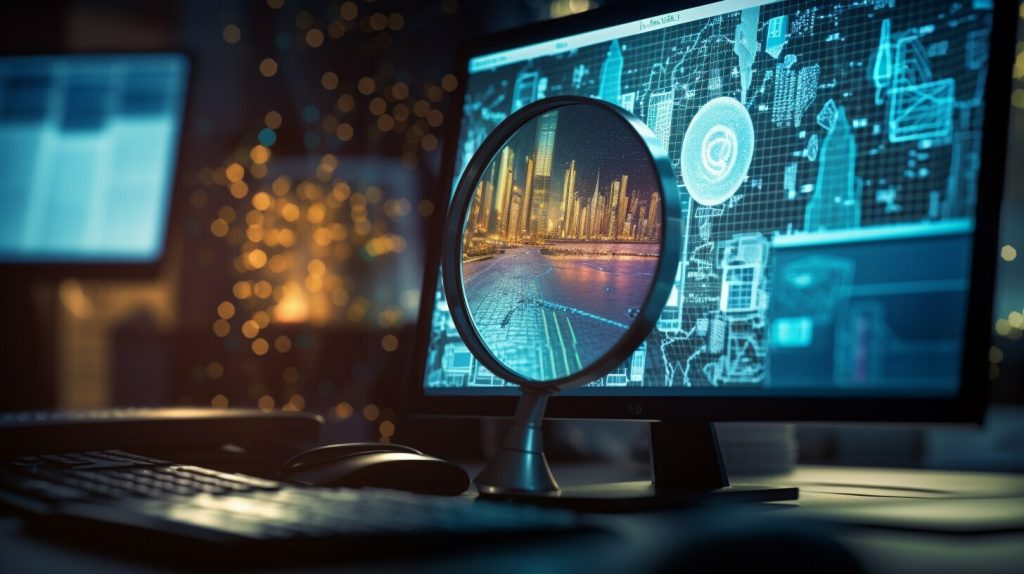Introduction
If you’re considering investing in or using a digital currency, it’s crucial to verify its authenticity and legitimacy. With so many cryptocurrencies available in the market, it can be challenging to distinguish between genuine and fraudulent ones. Conducting thorough checks before engaging with a cryptocurrency can help ensure that your investment is safe and trustworthy.
So, how do you know if a cryptocurrency is legit? In this section, we’ll discuss the key signals to look out for and the importance of conducting cryptocurrency legitimacy checks.
Key Takeaways:
- Verify the authenticity and legitimacy of a cryptocurrency before investing in or using it.
- Conduct thorough checks on factors such as transparency, team qualifications, community engagement, technology development, and compliance with regulatory requirements.
Evaluating Cryptocurrency Credibility
In order to determine whether a cryptocurrency is legitimate or not, there are several signs you should look out for. These trustworthy cryptocurrency indicators can help you distinguish between a genuine and fraudulent virtual currency.
First and foremost, transparency is key. Legitimate cryptocurrencies should have a detailed whitepaper that outlines their purpose, technology, and team members. Additionally, reliable digital currencies should have an active and engaged community. This can be seen through their social media presence, discussion forums, and the level of user interaction on their platform.
Another important factor to consider is the qualifications of the development team. Experienced and reputable professionals with relevant backgrounds in technology, finance, or cybersecurity can provide the necessary expertise to build a secure and effective blockchain network.
The quality of the technology itself is also a crucial indicator of legitimacy. A robust and reliable blockchain infrastructure is essential for secure and efficient transactions. Finally, regulatory compliance is a key factor. A legitimate cryptocurrency needs to comply with regulations in the jurisdiction it is operating in.
By carefully evaluating these signs, you can ensure that the cryptocurrency you are interested in is trustworthy and legitimate. Keep these criteria in mind when conducting your research and due diligence on a particular digital currency.
Signs of a Legitimate Cryptocurrency
| Indicator | Definition |
|---|---|
| Transparency | A detailed whitepaper outlining purpose, technology, and team members, along with a clear roadmap for implementation |
| Active community engagement | A strong and engaged community that actively participates in discussions and supports the platform |
| Qualified development team | Experienced professionals with relevant backgrounds in technology, finance, or cybersecurity |
| Robust technology | A reliable and secure blockchain network infrastructure that can handle transactions effectively |
| Regulatory compliance | Compliance with regulations in the jurisdiction it is operating in |
By paying attention to these signs of a legitimate cryptocurrency, you can distinguish between genuine and fraudulent virtual currencies. As you evaluate and compare different digital currencies, keep these trustworthy cryptocurrency indicators in mind to make an informed decision.

Characteristics of a Legitimate Cryptocurrency
When evaluating the legitimacy of a virtual currency, it is crucial to examine several key characteristics that define it. Here are some of the factors to consider:
| Characteristics | Description |
|---|---|
| Robust Blockchain | A legitimate cryptocurrency should have a strong and secure underlying blockchain technology, which serves as the backbone of the network. It should be decentralized, immutable, and resistant to tampering or attacks. |
| Clear Use Case | A legitimate cryptocurrency should have a clear and practical use case, which outlines how it can be used, what problems it solves, and what benefits it offers. The use case should make sense and be backed by a real-world need or demand. |
| Strong Security Measures | A legitimate cryptocurrency should have robust security measures in place to protect against hacking, theft, or fraud. It should use cutting-edge encryption technologies, multi-factor authentication, and other industry-standard security protocols. |
| Compliance with Regulations | A legitimate cryptocurrency must comply with relevant laws and regulations in the jurisdictions where it operates. It should have a transparent and accountable governance structure, and be willing to work with regulators to ensure compliance. |
By assessing these characteristics, you can gain a better understanding of the legitimacy and potential of a virtual currency. However, keep in mind that these factors are not the only ones to consider, and that conducting thorough research and due diligence is essential to ensuring the legitimacy of a cryptocurrency.

Authenticating Digital Currencies
Verifying the authenticity of a digital currency requires a multifaceted approach that involves utilizing various tools and methods. This section will outline some of the most reliable ways to authenticate digital currencies.
Source Code Verification: One of the most critical steps in authenticating a digital currency is verifying its source code. This involves analyzing the codebase to ensure its integrity, readability, and overall quality. It is essential to check if the code is open-source, indicating transparency and allowing for peer reviews. You can also authenticate the codebase by checking if it is regularly updated and maintained by the development team.
Team Qualifications: It is crucial to check the qualifications of the team behind a cryptocurrency project. A legitimate team should have expertise in areas such as cryptography, blockchain technology, and software development. The team members should be identifiable and have a verifiable track record in the relevant industries.
Independent Audits: One effective method of authenticating digital currencies is through independent audits. These audits provide an objective evaluation of a cryptocurrency’s technical and financial aspects. Look for audits conducted by reputable auditing firms, and avoid those provided by internal auditors or less-known firms.
Community Feedback: Feedback from the cryptocurrency community can give valuable insight into a cryptocurrency’s legitimacy. Check online forums, social media, and other online communities for discussions on a digital currency. Consider the feedback from experienced members who have a good understanding of the technology and the cryptocurrency market.
Engage with Cryptocurrency Experts: Engaging with cryptocurrency experts is another way to authenticate digital currencies. Seek advice and guidance from experts who have a good understanding of the technology and have been in the industry for an extended period. You can reach out to them through social media, forums, or by attending cryptocurrency events.
Using these methods and tools, you can authenticate digital currencies and ensure that they are legitimate and trustworthy.

The Importance of Cryptocurrency Legitimacy Checks
It’s crucial to conduct legitimacy checks before investing in or engaging with a cryptocurrency. The sheer number of virtual currencies in circulation, combined with the lack of regulatory oversight in the industry, makes it easy for fraudulent or illegitimate digital currencies to take advantage of unsuspecting individuals.
By ensuring the legitimacy of virtual currencies, you can mitigate the potential risks and consequences of dealing with fraudulent or illegitimate ones. These consequences can range from monetary losses to legal ramifications.
By conducting cryptocurrency legitimacy checks, you can gain a better understanding of the underlying blockchain technology, the development team’s qualifications, and whether the digital currency complies with regulatory requirements. These are all key factors in determining the legitimacy of a cryptocurrency and reducing your risk of investment fraud.

Don’t fall prey to cryptocurrency scams and fraud schemes. Stay vigilant and informed by conducting thorough legitimacy checks before investing in or engaging with a cryptocurrency.
Conclusion
Congratulations, you now have a better understanding of how to verify cryptocurrency authenticity! It’s crucial to conduct thorough checks before investing in or engaging with a digital currency. Remember to evaluate factors such as transparency, team qualifications, community engagement, technology development, underlying blockchain technology, use case, security measures, and compliance with regulatory requirements.
Additionally, utilizing methods and tools to authenticate digital currencies, such as verifying the source code, conducting due diligence on the development team, and consulting reputable cryptocurrency experts and communities, can also be helpful. Stay vigilant and informed in the ever-evolving world of digital currencies, and you’ll be well on your way to safely and confidently engaging with legitimate cryptocurrencies.
FAQ
Q: How can I determine if a cryptocurrency is legit?
A: To determine the legitimacy of a cryptocurrency, you can look for key signals such as transparency, team qualifications, community engagement, and technology development. Conducting thorough checks and due diligence is crucial to ensure trustworthiness and authenticity.
Q: What are the characteristics of a legitimate cryptocurrency?
A: A legitimate cryptocurrency typically has a robust underlying blockchain technology, a clear use case, strong security measures, and compliance with regulatory requirements. These factors contribute to its credibility and reliability.
Q: How can I authenticate digital currencies?
A: There are several methods and tools available to authenticate digital currencies. You can verify the source code, conduct due diligence on the development team, and consult reputable cryptocurrency experts and communities for additional validation.
Q: Why are cryptocurrency legitimacy checks important?
A: It is crucial to conduct thorough legitimacy checks before investing in or engaging with a cryptocurrency to avoid potential risks and consequences associated with dealing with fraudulent or illegitimate digital currencies.
